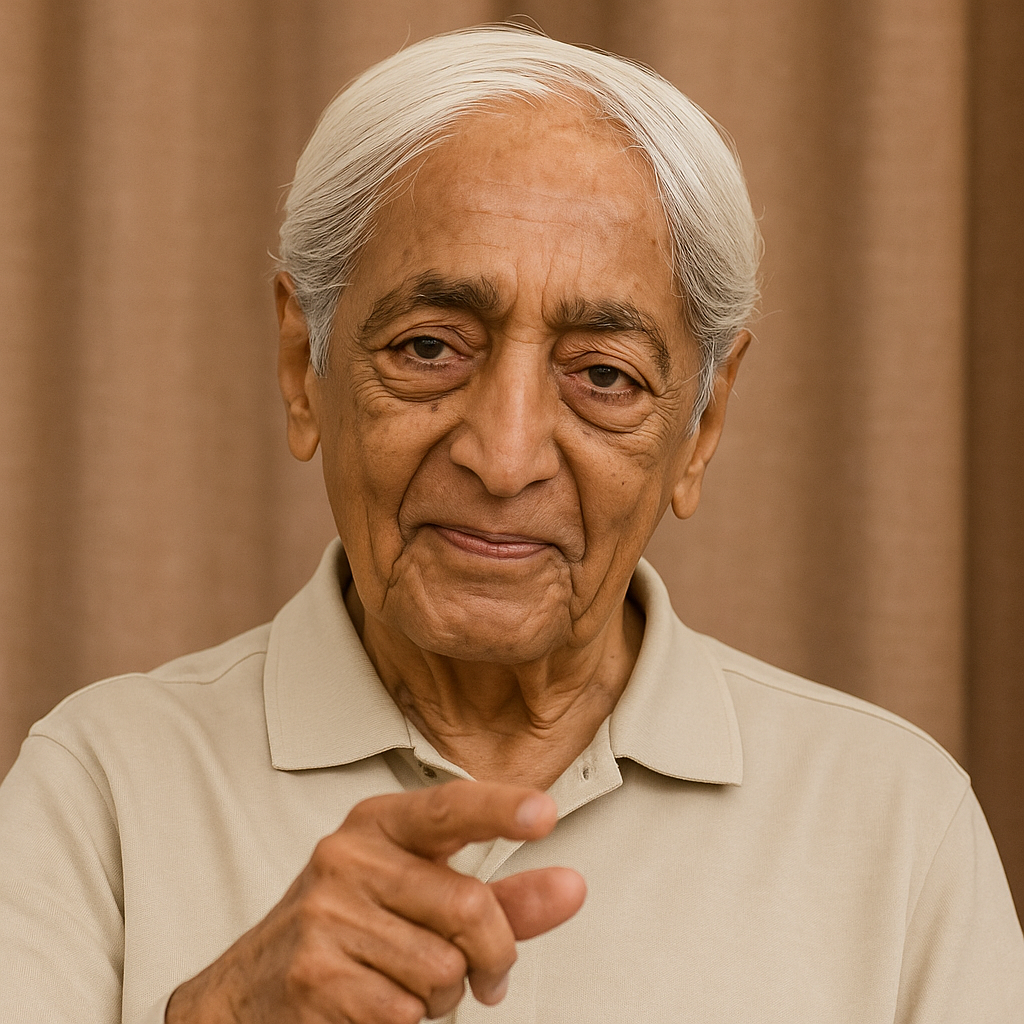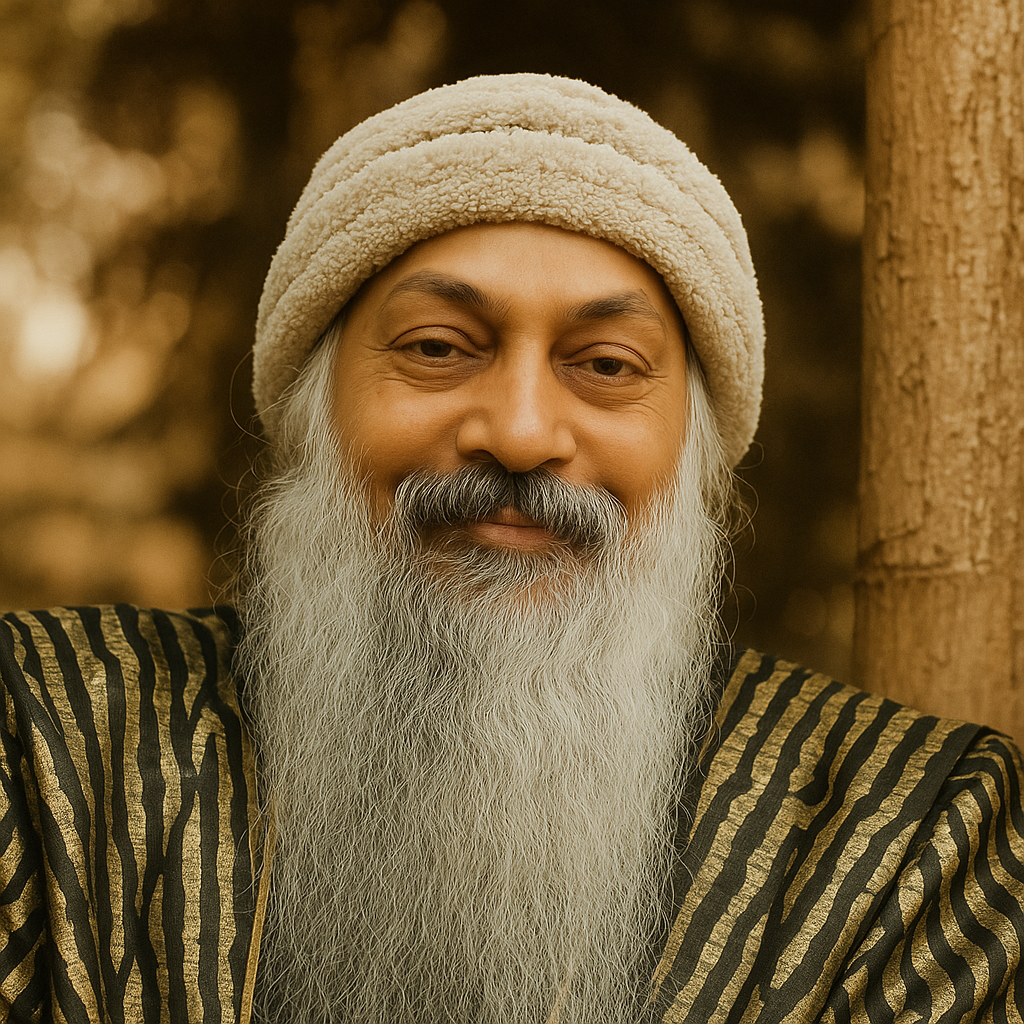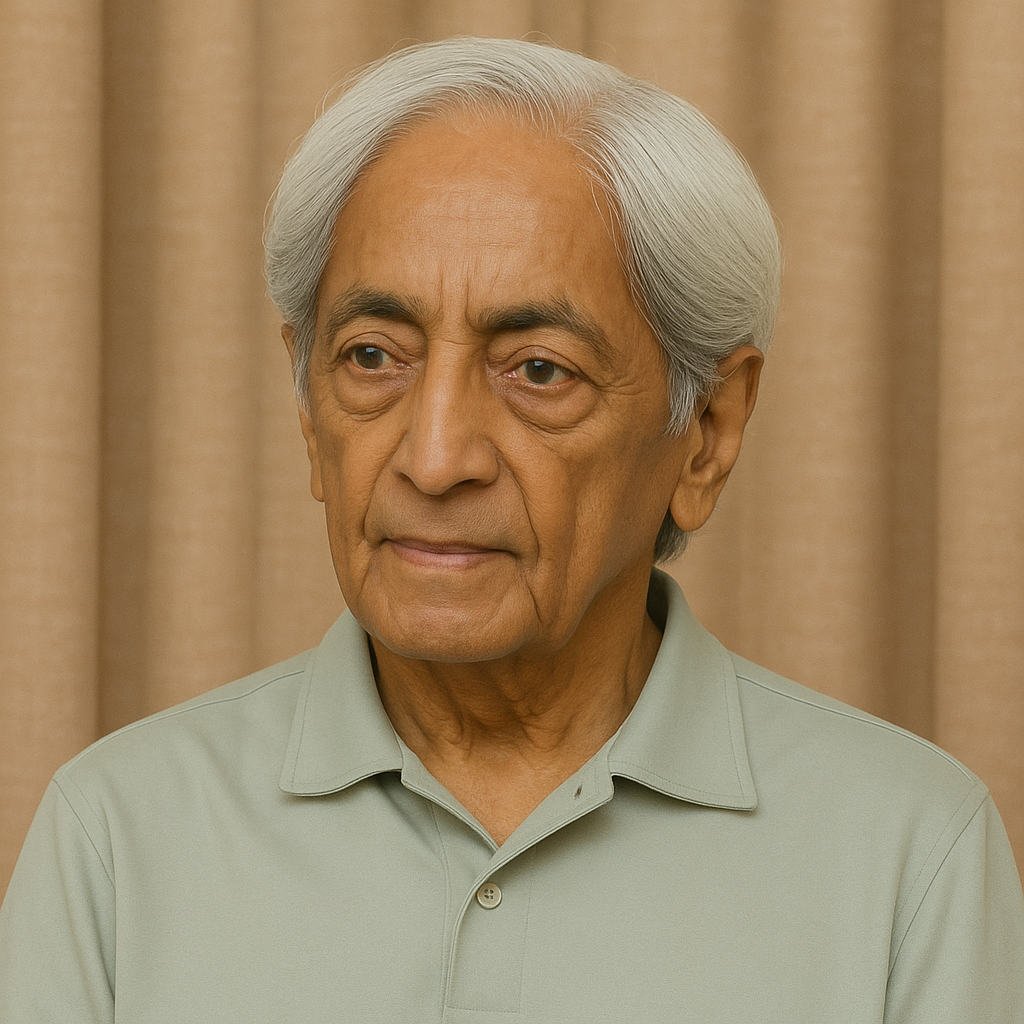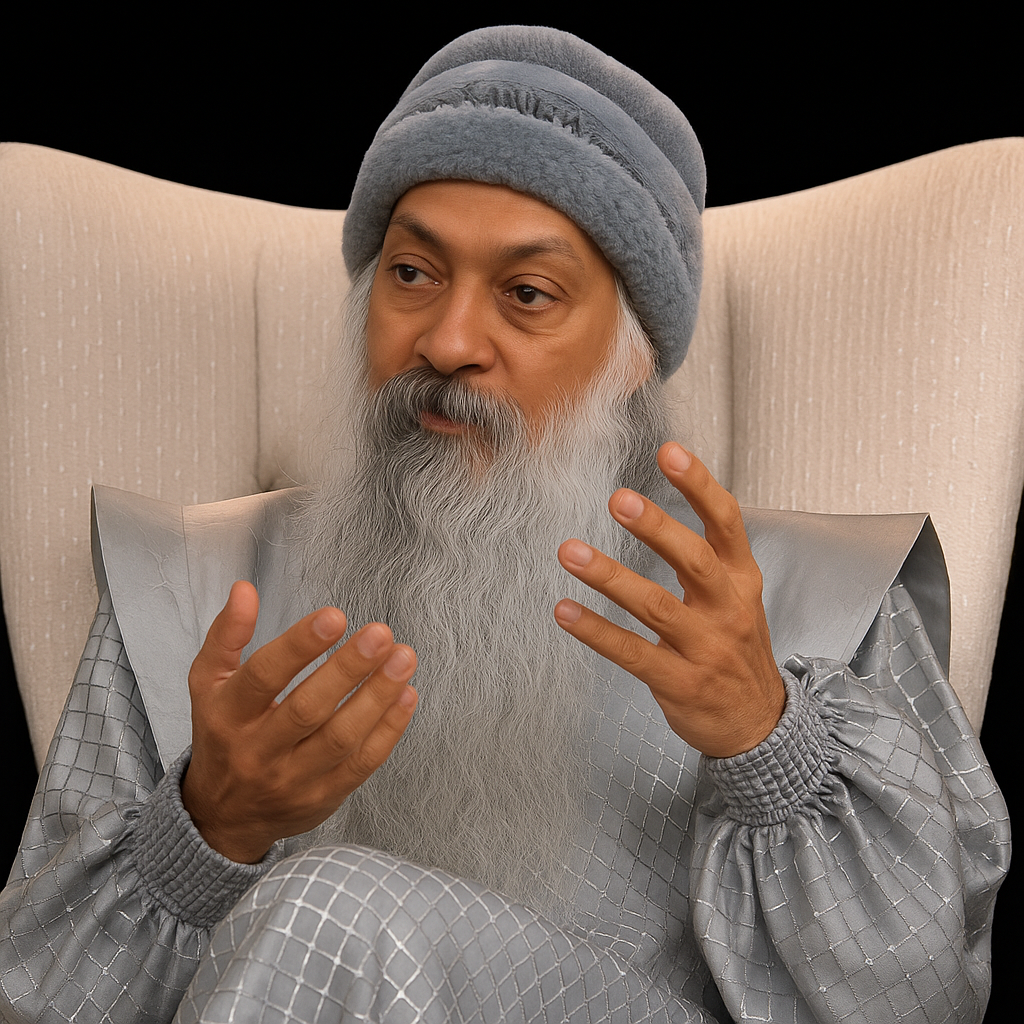The Root Cause of All Psychological Sufferings


Inspired by the teachings and philosophies of Jiddu Krishnamurti and Osho
1. Thoughts Create Suffering
The mind is a restless machine, constantly producing thoughts—thoughts about the past, the future, regrets, fears, comparisons, dreams, and endless ‘what ifs’. It creates problems through imagination and then tries to solve those very problems, like a person throwing stones into a calm lake and then complaining about the ripples. Thought asks, “Why am I not happy?” without seeing that it is the one generating the conflict. It compares who you are with who you ‘should’ be, creating a gap, and then offers solutions to bridge that gap—a self-made chase. A person fails once and starts thinking, “I’m not good enough,” then spends years trying to prove their worth, all because of one thought that was taken as truth. Another feels lonely and the mind says, “You need someone to complete you.” Now begins the search for love, not as a celebration, but as a need created by mental noise. The mind creates fear by imagining what could go wrong, then offers strategies to avoid that fear, pulling you deeper into anxiety. Thought builds a problem, then builds a solution, then worries about both. This loop becomes endless because thought cannot stop itself—it wants to fix the fire with more fire.
Overthinking becomes a disease when we believe every thought must be answered. We lie in bed at night and the mind starts spinning: “What if I lose my job?” “What if I fall sick?” “What did they mean by that message?” These questions arise from a mind addicted to solving and controlling. But many of these problems are not real—they are psychological projections. They exist only in imagination, yet we suffer as if they were actual threats. A student fears the exam result, not because the result is out, but because the mind is imagining a future of failure. An employee worries about a conversation with the boss, not because anything happened, but because thought is rehearsing future drama. In truth, most of what we fear never happens. But the body suffers as if it already has—because the mind does not know how to stop thinking. Even silence feels uncomfortable because thought wants to keep moving, solving, achieving, fixing something—even if nothing is broken.
Mental noise is not just in loud thoughts; it is also in subtle background chatter. It’s the constant inner voice that says, “Do more,” “Be better,” “Don’t mess up,” “They are watching,” “You’re not enough.” This voice has become so normal that we don’t even recognize it anymore. It drives us like a hidden slave master. You wake up, and the mind immediately starts planning, remembering, projecting. Even when you’re eating, it’s thinking about tomorrow. Even while resting, it is preparing for the next task. There is no gap, no space—only nonstop commentary. This noise cuts you off from the present moment, from the reality in front of you. You could be sitting in a garden, but you’re not with the trees or the wind—you’re lost in a storm of thinking. The mind is rarely quiet because it is afraid of silence. In silence, its control ends.
Look around and you’ll see how thought dominates modern life. People are constantly on phones, checking updates, reading opinions, posting selfies. Every moment is filled with input and output. Why? Because silence feels empty. Stillness feels scary. So we keep feeding the mind with information, entertainment, and opinions—not because we need them, but because we’re running from ourselves. The mind wants noise so that it doesn’t have to face the void within. And this is how thought becomes both the creator and the escaper of suffering. It creates a problem and when the pain of that problem increases, it distracts us with more thinking or activity. It never allows us to sit with ourselves. But healing starts when we finally stop running.
Take an example: someone gets rejected in a relationship. The pain is real. But the mind starts telling stories—“I’m not lovable,” “I’ll always be alone,” “I should have behaved differently,” “They were wrong,” “I’ll prove my worth.” Each of these thoughts adds another layer to the original pain. Soon, the rejection is no longer the issue—the thoughts about rejection are. The person may then distract themselves with social media, dating apps, workaholism, or spiritual bypassing. But all of that is just an escape. The wound is still there. It remains unresolved because thought won’t let it be seen clearly. Instead, it labels, judges, compares, and justifies. In doing so, it strengthens the wound. True healing can happen only when we look directly at the pain without interference from thought. When we simply observe it—not analyze, not explain—just observe.
The problem is that we have become identified with thought. We think we are the thinker. So whatever thought says, we believe. If thought says, “You are failing,” we feel like failures. If thought says, “You need this to be happy,” we chase it blindly. But we are not thought. We are the awareness in which thought arises. Thoughts come and go, just like clouds in the sky. You are the sky—not the clouds. Once this is seen clearly, you stop taking every thought seriously. You begin to watch it, question it, even smile at it. And in this watching, the grip of thought starts to loosen. You no longer become the noise—you become the witness of the noise.
Now imagine you’re sitting alone in your room. No devices, no book, no conversation. Just you. Within a few moments, the mind starts to feel bored, restless. It says, “Do something.” But if you just sit and observe, you’ll notice a storm of thoughts trying to pull you in. These thoughts may talk about work, family, money, goals, regrets. But you don’t have to follow them. Just watch them as you would watch passing traffic. Slowly, you’ll see that the thoughts are not you—they are patterns, memories, echoes. The more you watch, the more distance you create between yourself and your mind. This distance is not disconnection—it is clarity. And this clarity is freedom.
You see, thought is a tool—not a master. It is useful for practical matters—planning a journey, fixing a device, calculating costs. But when it starts interfering in emotions, relationships, and identity, it creates confusion. Thought cannot understand love. It cannot understand silence. It cannot measure truth. But it tries anyway, and in doing so, it destroys the very beauty of these things. A person may ask, “Why don’t I feel connected to my partner anymore?” And the mind will give a thousand reasons. But maybe the real issue is that thinking has replaced presence. Instead of being with the person, the mind is busy comparing, analyzing, expecting. Connection fades because presence is missing, and presence cannot be manufactured by thought.
We must also understand that the mind has a habit of self-protection. Whenever it senses discomfort, it tries to escape. This is why overthinking increases during moments of emotional pain. If someone criticizes us, the mind says, “They’re wrong,” “They don’t understand me,” or “How dare they?”—because accepting criticism hurts the ego. Similarly, if we feel insecure, the mind may distract us with fantasies of success or revenge. It does not want to face what is. It wants to paint a more comfortable version of reality. But this comfort is false. It is borrowed. And anything false cannot bring peace.
So, what can we do? We must learn to watch thought like a curious observer. Not to judge it or fight it, but to understand it. When a thought arises, ask, “Is this useful?” “Is this true?” “Do I have to believe this right now?” This questioning breaks the automatic flow of thinking. Slowly, the mind starts losing its control. We begin to see that not every thought deserves attention. Some thoughts are just noise—habitual echoes from the past or anxious projections of the future. The more we watch, the more we realize that silence is not scary—it is healing.
Even in daily life, this awareness helps. You’re walking, and the mind is busy worrying. Instead of getting lost in it, bring your attention to your footsteps, to your breath, to the sounds around you. You’ll see how quickly thought fades when you become present. Or suppose you’re having a conversation. Rather than thinking about what to say next, just listen deeply. Thought will try to interrupt, but you gently return to listening. This simple shift brings clarity and connection. It reduces mental noise without effort.
Children naturally live like this. They play, they fall, they cry, they laugh—and they move on. They don’t hold grudges, don’t analyze the past, don’t worry about tomorrow. They live fully in the moment because their minds are not yet cluttered. We were like that too—once. And that purity is still within us. It is just buried under layers of accumulated thought. We don’t need to become something new—we just need to unlearn the habit of constant thinking.
Suffering begins when we trust thought too much. Peace begins when we start questioning it. Not with violence, but with awareness. Thought is not your enemy, but it is not your master either. Let it do its job when needed—but don’t let it run your life. You are not your thoughts. You are the space in which thoughts come and go. And in this space, there is silence. In this silence, there is clarity. In this clarity, there is freedom.
Freedom is not the absence of problems, but the absence of compulsive reaction. Thought will still arise—but you won’t be trapped by it. You will walk through life like a river—flowing, present, untouched by the noise around and within. This is not a dream. It is a possibility—available to anyone who is willing to watch the mind without becoming it. And that simple act of watching may be the most revolutionary step
toward ending suffering.


2. Overthinking
Overthinking is not just a habit—it has silently become a psychological defense mechanism. When life feels unpredictable or emotionally uncomfortable, the mind starts running in loops, not to solve but to escape. This excessive mental activity gives an illusion of control. When reality feels too raw, the mind begins weaving stories, calculating outcomes, imagining conversations, and rehearsing futures. It becomes a full-time job, not because there is something real to handle, but because thought is afraid of facing the unknown. Like someone sitting in a room full of mirrors, seeing their own fears and hopes bounce endlessly, the mind keeps repeating “what if” and “if only” to protect itself from the simplicity of ‘what is’. This cycle is not random—it is a symptom of deep inner avoidance. Instead of looking directly at our pain, loss, or fear, we climb into the safety net of mental noise. It feels active, but it is actually a form of paralysis.
A student who failed an exam doesn’t just feel the disappointment of that moment—he begins to think, “What if I don’t pass next time?” “What if my parents stop believing in me?” “If only I had studied harder.” “What if I never become successful?” One failure becomes the seed of a hundred imagined failures. The actual pain was momentary, but thought stretches it across time like a shadow that follows the sun. Similarly, someone who has gone through heartbreak might start the cycle of mental rewinding: “If only I had said this,” “What if they come back?” “What if I never find someone again?” This looping is not healing—it is self-torture disguised as problem-solving. The mind fears the stillness that follows an emotional blow. So, it creates noise. It convinces us that thinking more means acting wisely. But in truth, it is a mechanism of delay. Thought becomes a smoke screen behind which we hide from emotional reality.
This mental loop of “what ifs” and “if onlys” is a prison made of imaginary bars. Every time we worry about something that hasn’t happened yet, we are trying to gain control over life. The irony is, the more we try to control, the more anxious we become. Life is not interested in our calculations. It moves with its own intelligence. But the mind, in its arrogance, tries to manage uncertainty by overanalyzing it. Overthinking about money, health, relationships, or career is not born from wisdom—it is born from fear. Fear of loss, fear of rejection, fear of failure. And to avoid these emotions, we escape into thought. We imagine worst-case scenarios as if preparing for them will somehow save us. But preparation born from panic only feeds more panic. Like a person rehearsing a thousand possibilities before making one phone call, we shrink our life into a rehearsal room. Real life happens outside, but the mind is stuck inside, running simulations.
One common example is people who overthink social situations. Before meeting someone, the mind starts planning the conversation: “What should I say?” “What if they judge me?” “What if I sound stupid?” After the meeting, the mind plays the review tape: “I shouldn’t have said that,” “Did they think I was awkward?” “I should have smiled more.” The entire encounter becomes a mental battlefield. In this way, thought transforms even the most ordinary moment into a source of anxiety. What was just a human interaction becomes a minefield of self-doubt and inner commentary. And this is not limited to social settings. It happens with job interviews, presentations, phone calls, or even choosing what clothes to wear. The fear is not in the event—it’s in the mind’s desperate attempt to perfect, predict, and protect. But life was never meant to be perfect. It was meant to be lived, not controlled.
This overthinking is not thinking—it is overuse of thought. Thought is a beautiful tool when used for practical needs. But when it invades areas like emotions, identity, or self-worth, it becomes toxic. Imagine using a hammer to brush your teeth. That’s what overthinking does—it uses the wrong tool for the wrong job. Emotions are not meant to be fixed by thought. They are meant to be felt, experienced, and released. But the mind doesn’t know how to feel—it only knows how to analyze. So when sadness arises, instead of staying with it, the mind starts building theories: “Why am I sad?” “What caused this?” “How do I stop it?” But the more we think about sadness, the more entangled we become in it. It’s like trying to swim out of a pool of mud by flapping your arms wildly. The solution is not more activity—it is awareness.
Many people have made thinking their refuge. They run from the present moment into the comfort of future possibilities or past regrets. They live not in the now, but in mental time. Sitting alone, they are not truly alone—their mind is filled with conversations that happened years ago or might happen years from now. Even joy is postponed—“I’ll be happy when I get that job,” “I’ll relax once I earn enough,” “I’ll feel complete once I find the right person.” These are not harmless thoughts—they are escape plans. Escape from the reality that happiness, peace, and love are only available now. But the mind refuses to sit in the now. The now has no support for ego, no space for ambition, no fuel for comparison. The now is just stillness—and the mind is terrified of stillness.
Why is stillness scary? Because in stillness, the mind loses its control. It cannot perform, manipulate, or justify itself. And that’s where truth starts to shine. The moment you stop thinking obsessively, you start seeing things as they are. Pain feels painful—but clean. Joy feels joyful—but innocent. There is no story—only experience. But the mind doesn’t want that. It wants to narrate, to frame, to own. So it keeps producing thoughts to hold onto some illusion of identity. “I’m the victim,” “I’m the achiever,” “I’m the thinker.” All identities are fed by thought. That’s why overthinking is not just a habit—it is an addiction to identity. When you’re not thinking, who are you? The mind cannot answer that. But your awareness can feel it. And that feeling is freedom.
Even in relationships, overthinking kills love. Instead of being with the other person, we are in our minds judging them, measuring them, recalling their past behavior, or fearing their future actions. We start thinking for them—“What are they feeling?” “Why did they say that?” “Are they losing interest?” “Am I enough?” This inner storm prevents true connection. Love becomes filtered through thought, and what could have been a deep bond becomes a project of interpretation and protection. True intimacy needs vulnerability, and vulnerability cannot survive in overthinking. Because overthinking is a wall—it guards the heart with analysis.
Another example: someone is anxious about money. Instead of taking clear steps—budgeting, working, saving—they spend hours worrying. “What if I lose my job?” “What if the economy crashes?” “If only I had invested earlier.” These thoughts don’t lead to action—they lead to paralysis. The fear of an imagined future prevents action in the present. The mind feels active but the body is stuck. And this is how overthinking becomes a form of procrastination. We think more, but do less. We imagine every possibility, but take no step forward. It’s like standing at the edge of a pool, calculating every angle of the dive, while others are already swimming.
The deeper truth is: overthinking is a cover. Beneath it lies a deep fear of feeling. Thought is used to avoid emotions—grief, shame, guilt, fear, loneliness. When these emotions arise, the mind quickly starts spinning stories around them to avoid feeling them directly. Someone feels guilt and the mind says, “You’re a terrible person.” Now the attention shifts to fixing the self-image instead of feeling the guilt. Someone feels lonely, and the mind starts planning how to find company—rather than sitting in the loneliness and understanding its root. This is the great escape—thought helps us run from the very wounds that need attention. Healing cannot happen this way. To heal, we must feel. And to feel, we must stop thinking for a while.
But how do we stop overthinking? The answer is not to force silence—it is to bring awareness to thought. Awareness is the light that reveals the unnecessary. When you become aware of your thoughts, you no longer automatically follow them. You pause. You ask, “Is this useful?” “Am I solving something real or just avoiding something deeper?” This simple questioning brings space between you and the thought. And in that space, intelligence is born. The intelligence to act, to feel, to let go. This intelligence is not from thought—it is from awareness.
Try this: next time you find yourself lost in a loop of worry, pause. Take a breath. Ask yourself, “What exactly is the problem right now, in this moment?” You’ll often find that there is no actual problem—only a thought about a possible problem. That clarity itself weakens the thought’s power. You don’t need to fight your thoughts. You only need to see them clearly. Like fog dissolving in sunlight, unnecessary thoughts dissolve in awareness. Slowly, the mental noise starts to lose its grip. And in that quiet, you find something beautiful—peace, not because everything is perfect, but because you’re no longer running.
Children are a great reminder. They feel everything fully, but don’t overthink. They cry when hurt, laugh when happy, and move on. They don’t sit with “what ifs” and “if onlys.” Their presence is pure because their mind is not yet burdened with past and future. We were all children once. That innocence is still within us. It’s just buried under layers of mental dust.